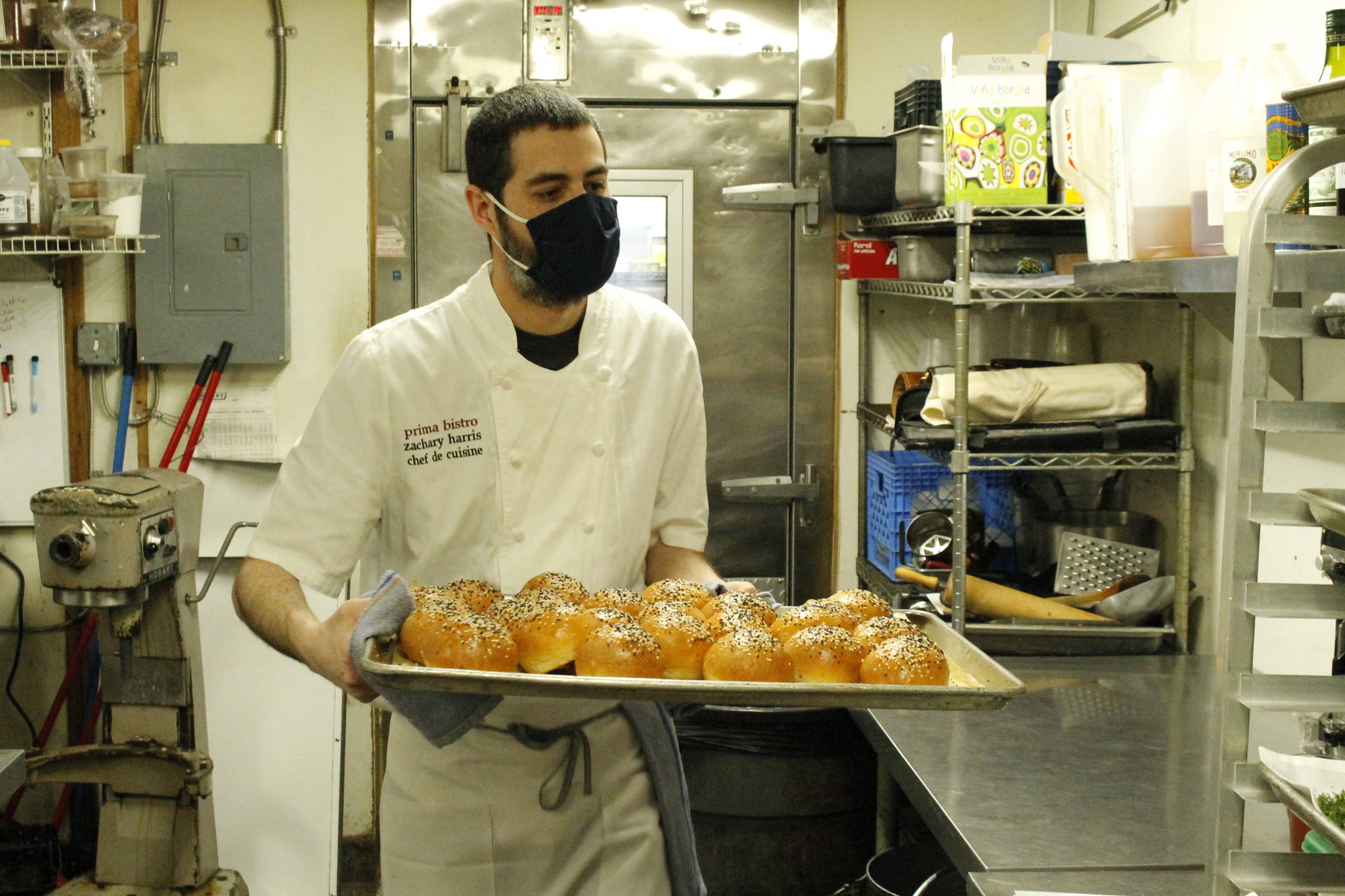Whidbey businesses recovering from the COVID-19 pandemic are finding themselves hit hard by another challenge: a shortage of workers and droves of customers who have tired of their own four walls.
As the weather has gotten warmer, short-staffed small businesses — especially restaurants — have found themselves unable to keep up with the demands of spring crowds eager to escape their homes.
During a Langley city council meeting last week, Inge Morascini, the executive director for the Langley Chamber of Commerce, described an influx of visitors that would be normal for July, but which has been happening in April.
One solution, she said, could be the allowance of food trucks earlier in the year to help alleviate some of the pressure restaurants have been feeling from the hungry hordes of tourists.
Langley’s ordinance currently states that food trucks are not permitted until shortly before Memorial Day weekend.
Langley Mayor Tim Callison agreed that the council could review the ordinance and potentially decide to update it, although those changes wouldn’t go into effect until after the improved ordinance is brought forth at the next two council meetings. The time of operation, location, and number of food trucks will also have to be discussed.
Morascini pointed out that there are plenty of jobs available in Langley.
An April 22 newsletter from the Langley Chamber of Commerce listed 30 places, the majority of which are located in Langley, that are hiring workers.
Places like Saltwater Fish House and Oyster Bar and Prima Bistro are even offering incentives for workers who live off-island, including covering the cost of ferry fare.
Jenn Jurriaans, a co-owner of the two restaurants, said it has been particularly difficult to find applicants to fill “back of house” positions — such as dishwashers and line cooks.
A lack of staff meant three-hour waits for some during the last sunny weekend.
Her restaurants have been running at 50 percent capacity and “50 percent of the hours,” she said. Each one is open for five dinner shifts and two lunch shifts.
She advises famished travelers on weekend getaways to either make reservations in advance or to consider getting some groceries earlier in the day so they don’t go to bed hungry.
The Braeburn, a popular brunch spot one street away in Langley, shut down temporarily for one week so exhausted workers could take a much-needed rest.
“It was so apparent that we were all getting really burned out,” said Lisa Carvey, the restaurant’s owner.
The restaurant, also short on staff, has had to make some changes recently, including demoting its tent space from a full-service extension of the building to a place where people can sit and eat their take-out orders.
Carvey said the Braeburn needs about eight more people on staff in order to return the tent to a full-service area and in order to have the restaurant operate on a schedule with full hours.
The lack of affordable housing for the workforce has also exacerbated the labor shortage issue.
“We just lost one potential applicant because he couldn’t find anything on the entire island,” Jurriaans said.
In addition, she suggested people have been leaving the restaurant industry during the pandemic.
Unemployment benefits have also been an attractive lure to some.
The leisure and hospitality industry — which includes restaurants and hotels — has been the slowest of all the industries to recover in the state, according to Anneliese Vance-Sherman, the regional labor economist with the state Employment Security Department.
“I expect that the industry will continue to see a great deal of instability relative to other industries due to the face-to-face nature of the industry and pandemic risk,” Vance-Sherman said.
The “stabilizing presence” of the Navy, she said, has helped the sector recover more in Island County, compared to the state.
Comparing March 2020 to March 2021, the estimated drop in jobs in the county was 260, or 11 percent.
There were 521 unemployment insurance claims in Island County for the 14th week of 2021, with 23 in the “accommodation and food services” category.
During that same week, pandemic emergency unemployment compensation had 1,089 total claims, with 169 in the “accommodation and food services” category.
Vance-Sherman said that category has the highest number of active unemployment claims of any industry in total.
A summary from Opportunity Insights about the economic impacts of COVID-19 observed that small business revenues and job losses were the most pronounced in high income areas and consumer spending decreased to the largest extent among high-income households.
“When we are thinking about the affluence of different communities on Whidbey Island, it makes sense to me that Langley would be feeling the pain to a larger extent than, for example, Oak Harbor,” Vance-Sherman said.
The worker shortage, however, is not unique to South Whidbey. Leaders of the chambers of commerce for both Coupeville and Oak Harbor also reported a number of job openings in North and Central Whidbey.
Vicki Graham, the executive director for the Oak Harbor Chamber of Commerce, gave a generous estimate of 500 possible jobs island-wide that are up for grabs right now.
The chamber will be partnering with WorkSource Skagit to host virtual “career cafes” the first Friday of every month. Businesses will be able to list their job postings and chat with potential applicants over Zoom.
The first job fair will be May 7. More information is available on the chamber’s website at oakharborchamber.com.
An earlier version of this story incorrectly stated that Langley restaurants had to turn away half of their customers. It should have said that Prima Bistro turned away 50 tables, instead of all restaurants had to turn away 50 percent of their customers.



